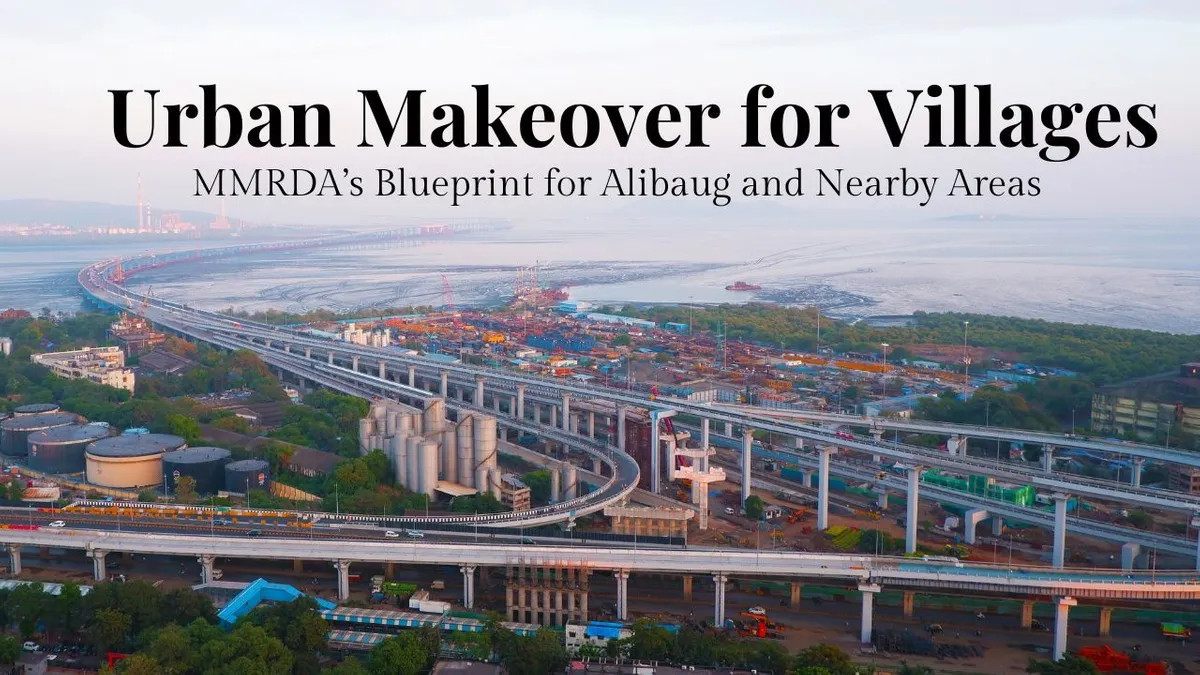MMRDA launched a significant ₹325 crore project to upgrade rural roads across ten Alibaug villages after it was designated the special planning authority. Tenders have been issued for a consultant to prepare detailed project designs and oversee construction of approximately 28 km of cement‑concrete pavements, targeting all‑season usability on currently dilapidated stretches.
The renovation covers key routes including Burumkhana Naka to Vidyanagar, Navagaon to Chondi Naka, and Gaychole to Phansapur—roads that have long frustrated commuters, tourists, and local businesses. Fleet operators and riders say broken tarmac has hampered access to Alibaug’s beaches and weekend attractions, affecting local livelihoods. MMRDA officials stressed the project’s goal of enhancing last‑mile connectivity for residents, tourists, and businesses, noting that smooth rural roads reduce dust, emissions, and vehicle wear—contributing to a greener, healthier environment. Execution timelines will accelerate once the DPR consultant is appointed.
This scheme forms part of a broader MMRDA strategy encompassing Raigad, Palghar, Vasai, Pen, and Khalapur, and complements larger infrastructure efforts. Among them is the planned 126‑km Virar–Alibaug multimodal corridor, which recently received Cabinet approval and promises to halve current travel times between Virar and Alibaug. That corridor, with an estimated outlay of ₹37,000–63,600 crore, is poised to trigger a surge in real estate and tourism investment. Infrastructure analysts suggest that rural road upgrades often precede large-scale corridor projects, laying the groundwork for seamless integration. One planning expert noted that improved feeder roads strengthen the utility of expressways by facilitating reliable vehicle flow from villages to major routes and public transport nodes.
Funding for the rural project is already underway, with tenders totalling ₹251 crore across three packages. The full ₹325 crore allocation aligns with MMRDA’s vision of structured development. A senior officer said that once the DPR is ready, construction could begin in early 2026, weather permitting, and is expected to complete within two years. Beyond surfacing, the project will improve drainage, footpaths, and signage to support pedestrians and ensure all‑weather accessibility. This reflects a commitment to gender‑neutral and inclusive infrastructure, ensuring rural women, students, and elderly residents can move safely and independently.
Critics have raised concerns about environmental impact, especially the disruption of farmland or coastal ecosystems. An MMRDA planner assured that no agricultural land will be commandeered and drainage plans will preserve habitat corridors. The environmental section in the DPR will address these concerns through public consultation. In parallel, the Virar–Alibaug multimodal corridor is anticipated to drive major economic shifts. Its Phase 1 approval allows land acquisition for a 96 km highway linking Navghar and Balavali, and it will intersect national highways and freight corridors—creating potential for industrial clusters, real‑estate development, and tourism expansion. Experts caution that such transformation requires balanced town planning to prevent unstructured growth.
The rural road upgrade marks an early stage of Alibaug’s transformation from a collection of villages to a metropolitan fringe—an evolution supported under Mumbai’s Adaptive Development Plan. As a designated special planning area, Alibaug is now subject to unified development regulations, composite infrastructure strategies, and public consultation. Local residents appreciate the change. One small‑business owner said improved roads would encourage longer tourist stays, boosting local cafes and shops. Village panchayat members noted that smoother roads would reduce school commute risks and improve emergency access, making rural Alibaug safer and more livable.
This project signals MMRDA’s intention to knit Alibaug into Mumbai’s urban fabric while preserving its rural charm and sustainability. Integrating these rural upgrades with large‑scale corridors, coastal links like the upcoming Navi Mumbai International Airport, and diverse transport modes positions the region for growth—and sets a model for equitable suburbanisation. At the same time, policymaking experts advise that careful oversight will be crucial. With rising speculation and shifting land use patterns, local governance bodies must ensure village voices are heard in the planning process. Sustainable planning will need to balance road improvements, mobility integration, water resources, heritage conservation, and agricultural land protection.
When completed by mid‑2027, the ₹325 crore rural roadmap will deliver more than cement‑concrete surfaces—it will deliver improved quality of life, stronger economic potential, and environmentally conscious mobility for Alibaug’s residents and visitors.
Also Read : Rapido to Launch Unified Ticketing System for Delhi Metro Users


